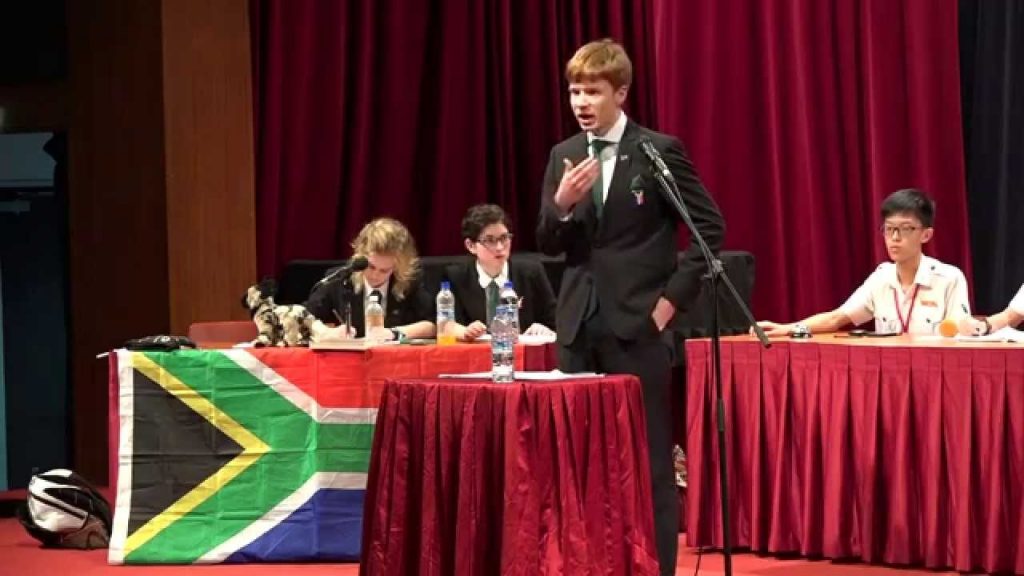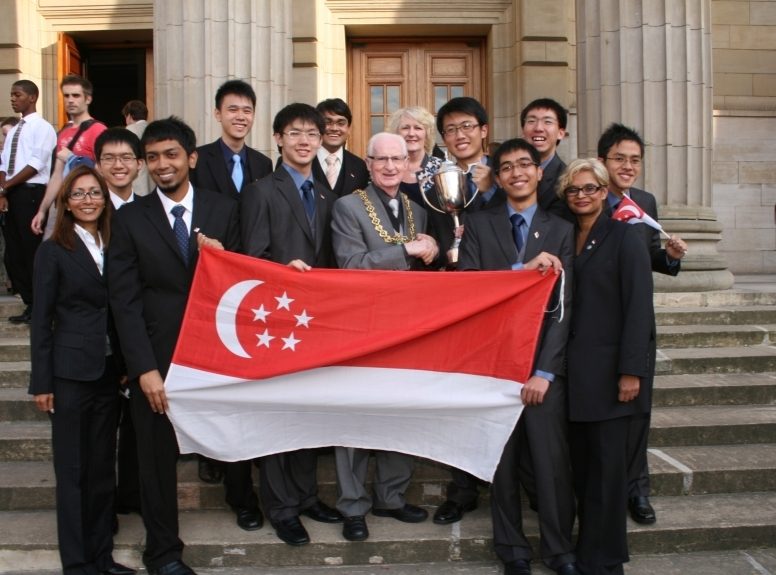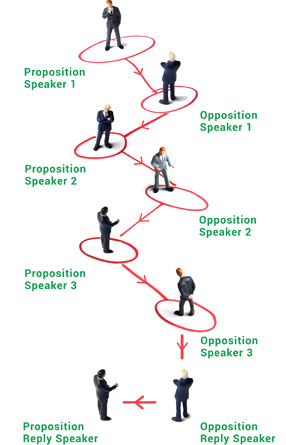Debate is one of the most unexplored areas of extra-curricular activities and many students in fact fear venturing into it. It seems like an unexplored territory and it feels intimidating to produce an argumentative speech that is looked upon with a great amount of scrutiny by an opposing team.
Debate tutors, Private English tuition teachers, and English tutors in school have the expertise to train students to attain the skills of an excellent debater.

Debating is starkly different from giving a formal speech or conducting a seminar. It is important to realize that a different set of skills and approaches to practice is required to be a good debater.
Tutors will train students to first and foremost track a debate properly. After that comes the training to give a well-structured 1st proposition speech. And then students will progress to learn the speech structures of 2nd and 3rd speakers which are heavy on rebuttals.
So, let’s take a more detailed look into how a school debate can be won under the training of a good tutor!
What is debate?
A debate is an organized, healthy argument of ideas in which the participants discuss a topic from two opposing sides. A debate topic which often starts as some of the following,
- THW (This House Would)
- THR (This House Regrets)
- THBT (This House believes That)
- THS (This House Supports)
These are some of the ways a debate motion (a debate topic would start) and two opposing teams would have to contest each other. There will be one house (team) that proposes he motion while the other opposes it.

DEBATE FORMATS
There are various debate formats, but the two most common formats that students contest in is the World Schools Debating Championship (WSDC) format and the British Parliamentary (BP) format. The structure of these debates varies greatly, so let’s take a look at each of them separately.
WSDC

In World Schools format a team comprises of three to five members who can discuss and prepare together, out of which 3 of them will be the main speakers. One the debate has commenced; discussion is only permitted within the 3 speakers and the two other team members are not allowed to communicate with their team.
There will be 2 teams; the “proposition” or “opposition”, who will either provide reasons for or against the motion. Here are some key features of a WSDC debate:
- The first three speakers of each time are required to give 8-minute speeches.
- Each team then delivers a “reply” speech which is of four minutes in length, that is delivered by either the first or second speaker on their team.
- During the main speeches (delivered by 1st, 2nd and 3rd speakers) “Point of Information” (POIs) can be given between the first and seventh minute of the speech. A POI is a short (up to 15 seconds) interjection in which any member of an opposing team can ask a question that challenges the substantive or objects to the grounds of the main speech.
- It is the speaker’s discretion to accept or decline a POI that is offered, but speakers are required to accept minimum of two during their speech.
BRITISH PARLIMENTARY DEBATE (BP)
British Parliamentary debate, or BP, is one of the most popular style of intercollegiate debating which is the format followed in annual World Universities Debating Championship (WUDC). Here are some key features of this format of debating:
- The motion is disclosed 15 minutes prior to the beginning of the first speech.
- During the 15-minute preparation the speaker may only speak to their partner.
- The team’s position in a given round will only be known right before the motion is announced.
- Four teams will participate in a BP debate. Two teams represent the Government (who will be proposing the motion), and two teams will be known as the Opposition.
- Each speaker has to deliver a 7-minute speech, which will proceed in the following order:
- Prime Minister
- Leader of Opposition
- Deputy Prime Minister
- Deputy Leader of Opposition
- Member of Government
- Member of Opposition
- Government Whip
- Opposition Whip
- POIs apply for this format of debate as well
- The first and last minutes of every speech is known as the “protected time,” and no POIs can be requested.

THE REBUTTALS
A good debater should have a wealth of knowledge and the presence of mind to be able to find the weak areas, loose ends, and loopholes in the opposing team’s arguments. Some problems that can be spotted in arguments are:
- False dichotomy
- Sweeping statements
- Morally flawed statements
- Impractical policy suggestions
- Faulty correlation; lack of establishing a solid cause-and-effect relationship
- Contradictions
- Unrealistic suggestion of solutions
A good debater should use techniques like playing devil’s advocate, using rhetoric, posing hypothetical situations, and many more! Debate, like any other form of art, can be mastered with plenty of practice and dedication!
